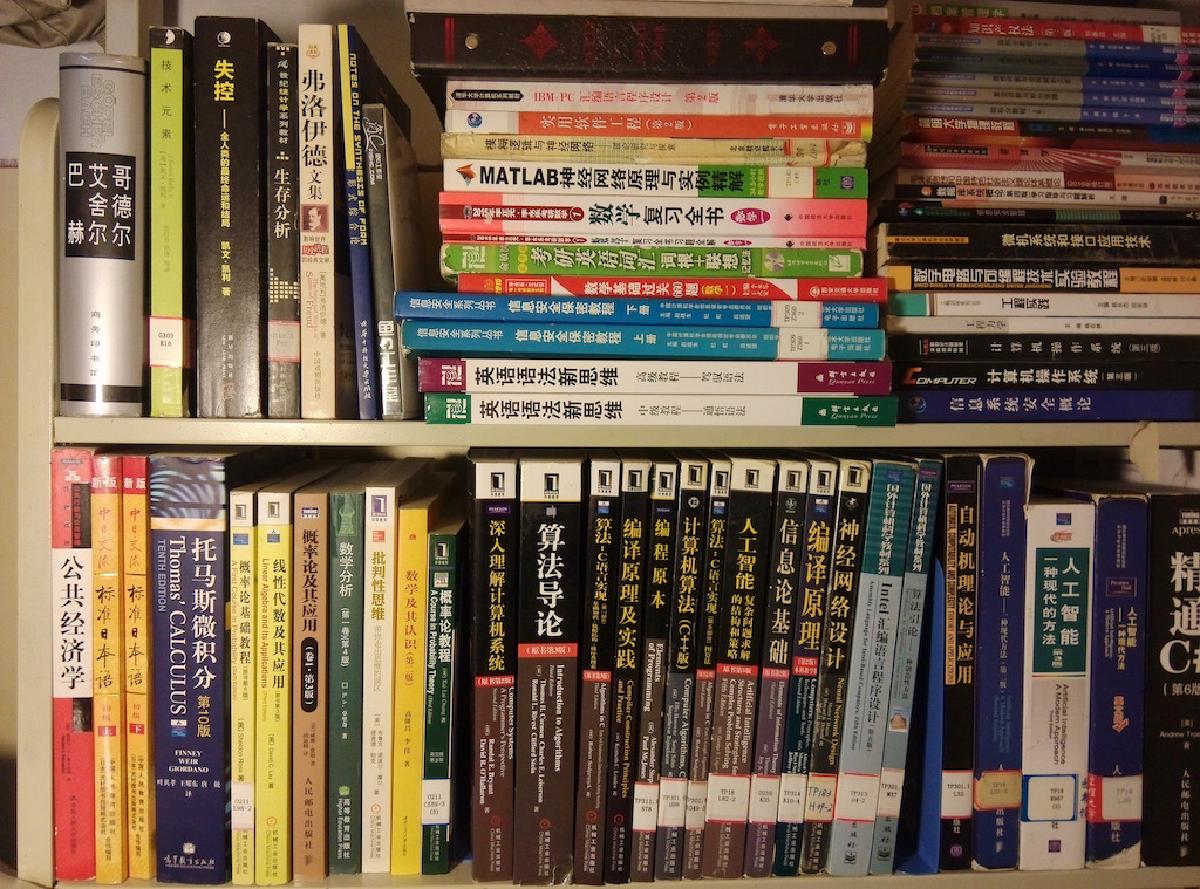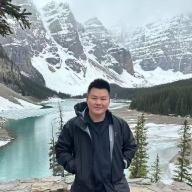Unable to sleep in the dead of night, spending the last hour of 2014 reviewing this year and looking ahead to next year seems quite appropriate.
Casually flipping through my 2013 year-end summary and 2014 diary entries, I’m filled with many emotions. My first New Year diary entry specially recorded Obokata Haruko’s induced stem cells and the discovery of magnetic monopoles, while now the Obokata incident has come to an end. Although my internship at Alibaba was back in July, I can still vividly remember every detail of those days. Thanks to my diary, a whole year’s worth of memories remain as fresh as yesterday.
Comparing with last year’s plans for this year, I’d say I achieved more than half of my expected goals. Most other goals were replaced by different ones as my life path changed direction. Ha, plans really can’t keep up with changes—following Alibaba’s standard buzzword of “embrace change.” After hearing the boss repeat it so much, I’ve come to accept it gladly. Overall, in one year I went from deciding to pursue graduate school, to going abroad, to working, and finally settling on a decent compromise of all three. I sure know how to keep things interesting.
If 2013 was about self-awakening, full of passion and idealism, this year was about pragmatic hard study and qualitative transformation. I finally truly understood the meaning of learning, mastered learning methods, and put learning into practice. What a pity that this wisdom came only after wasting two years! I genuinely envy those classmates who had good guidance from the start of university or even earlier, with clear goals they constantly strived for, while I had to hack through the wilderness to gain these experiences myself. But one must always look forward, right? Thinking about how Liu Mipeng went through the same thing, I’m not too late, am I?
From January to June this year, I focused on English and mathematics, plus some machine learning. My personal take: English really is a one-to-one return on investment. The direct return is English proficiency, but the indirect value far exceeds that. Now I can watch online courses without subtitles at 1.5x-2x speed without pressure, original textbooks aren’t uncrackable nuts anymore, not to mention many standards and documentation that simply don’t have Chinese versions. This time investment was incredibly worthwhile. For mathematics, I mainly worked through calculus, linear algebra, probability theory, and statistics. I used classic textbooks that completely destroyed the school’s terrible books. These tasks should have been completed in freshman year, but alas… anyway, it’s not too late. Throughout the first half of the semester, I basically lived in the library. Nothing but English and mathematics. But in my view, the fundamental improvement in understanding and application of these two subjects was the root cause of the qualitative change in my learning ability. For any infrastructure investment and reproductive investment, I prioritize time allocation with full effort. Mathematics and English are exactly this kind of high-return investment—spending an entire semester to master them only makes me feel the time investment was still too little.
Then I interned at Alibaba for over two months. Those two months at Alibaba were another upgrade for me. It’s quite interesting when I think about it. When I interviewed for the Alibaba internship, I had just finished brushing up on some mathematics and English. My programming skills were only at the level of classroom projects and random assignments. To be honest, our school’s CS courses were shit, and I barely listened, so I was even worse. During the interview, they assigned me to R&D and asked some C++ and OS questions—I only had ideas but no solutions. They switched me to algorithms, but I forgot how to hand-write quicksort, and couldn’t solve either of the two problems. Fortunately, my probability theory study wasn’t in vain, and I managed to pass through analysis and discussion. Looking back, it was all about having a good mindset—I went there purely for fun, chatting and laughing with the interviewer without pressure. I only applied to one company and got it.
Once I got to the company, to avoid being exposed as incompetent, I stayed at the office every day until 6 PM when everyone else left. Weekends too—just camping at my workstation studying. I pulled several all-nighters, thankfully there were some comfortable sofas in the meeting rooms. With this drive, within a week this Python newbie was writing online crawlers. Regular expressions, Redis, distributed jobs—I tackled them one by one through crash courses. My Linux skills were basically just ls+cd level, and I couldn’t use vim at all. Well, once in the production environment, everything was forced out. The greater the pressure, the greater the motivation. I also experienced the lifestyle of the “top tier of the working class”—programmers really do have easy, pleasant work with good pay, but from another perspective, they’re both awesome and attract a lot of hate.
Regardless, after a round of technical training, I became basically qualified, and I learned about industry demands, gaining another direction to choose from. Most importantly, I finally entered society for the first time: my Beijing rental experience was quite interesting—a group rental with fifteen people, ten of them women. All walks of life were represented: entrepreneur experts, senior students from Beijing University of Technology, real estate agency employees, YY streamers, nurses, tutors, designers, bar bartenders, and even some nightclub girls, plus the magical landlord himself. The living conditions of various Beijing social strata were microscopically condensed here, truly opening my eyes.
Alibaba went public three days after I left, which was quite a pity. Waking up to find people I sat with suddenly becoming multi-millionaires was quite interesting. Although getting rich was nice, at that time I still held infinite longing and enthusiasm for academics. I resolutely returned to school and joined a lab to prepare for publishing papers. After two months in the lab, during which the professor even encouraged me to continue with graduate school for half a month, those two months of contact finally made me completely lose interest in China’s academic world. I finally discovered I was born to be an engineer, not a scientist. Although I think being an engineer is more fun now, deep down I still harbor admiration for scientists—definitely not domestic ones though.
Anyway, after deciding on my future path, I threw myself completely into studying and withdrew from the lab. From Singles’ Day until now, I’ve never been this crazy. Every night, I’d move a small stool to the corridor to read under the lights, later finding it unbearable and switching to every other day. Even I’m amazed by this efficiency. After devouring over ten thick textbooks, the effects were immediate. American computer organization, operating systems, networks, a pile of C++ classics—immediately made a difference after consuming them. Here I have some insights: I used to buy piles of thick books but always got stuck at chapters two or three because I thought I couldn’t continue without fully understanding everything, causing progress to stagnate. But later I deeply understood the dialectical relationship between practice and knowledge in Marxist philosophy (I’m not bullshitting), and decided to follow a simplified version of “How to Read a Book” methodology: first a quick, holistic reading, then carefully building conceptual cross-references, finally doing exercises and intensive reading. The effect was excellent.
After reading dozens of books continuously, I finally feel like a qualified programmer—at least at the average level of fresh CS graduates from Tsinghua and Peking University. Sigh, the learning environment at a mediocre 211 university is so far from Tsinghua and PKU, plus my two years of wasted time—how much effort would it take to catch up? But I’m also lucky—whether in real life or online, I’ve encountered many experts. At least I’m always aware of my gaps and won’t become complacent. Knowledge must be acquired through systematic study, but insights and understanding can be conveniently obtained by learning from masters. I’m very grateful to Zhihu for this.
That’s about it for this year’s life, nothing else particularly noteworthy. I bought a desktop computer on Singles’ Day—with all peripherals, it cost twelve thousand total. If I hadn’t gone for that internship, my mom would have killed me if she found out. But now I can not only buy things for myself, I even have extra money to buy my mom an iPad. Being financially independent feels pretty good. The machine is great—two-second boot time. All games run on top settings without issue, though lately I suddenly lost interest in gaming. The machine is perfect for development, so comfortable that I can’t get used to my laptop anymore.
This semester I planned to get my driver’s license, but was stood up by the driving school for a month. If I hadn’t paid tuition for that month and put the money in the stock market instead, who knows how much I would have made—quite a pity. But what can you do? Once working, it would be even more impossible to learn to drive.
Oh, I gained weight again. The year before last, I desperately went from 110kg to 78kg. Then this year with less exercise, I’m back to 90kg. Simply unbearable! This kind of thing, I’ll tackle it again during winter break.
That’s how this year went. Overall it feels pretty good—at least I worked hard enough that my future self won’t regret it.
2015 has arrived. Looking ahead to this year, there’s quite a lot to do. I remember some psychology book saying that stating your goals out loud weakens motivation to work hard because of the satisfaction from others’ praise, so I simply won’t mention this year’s plans. I’ll stop writing here. Self-encouragement.


